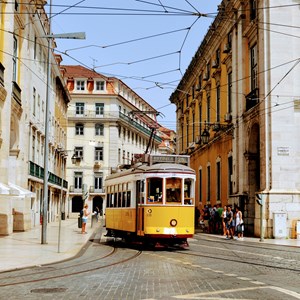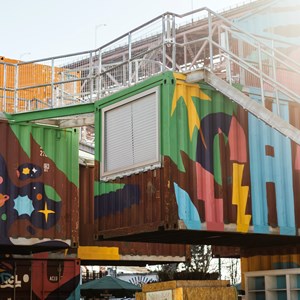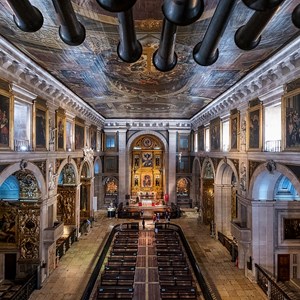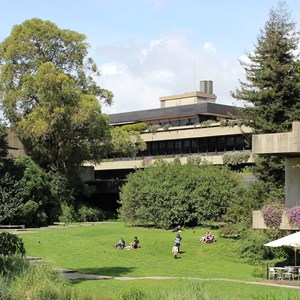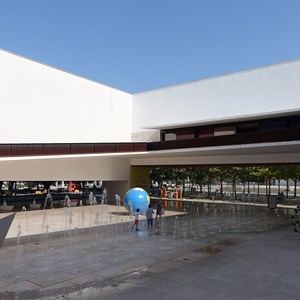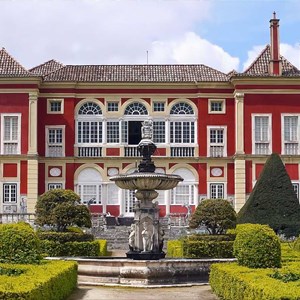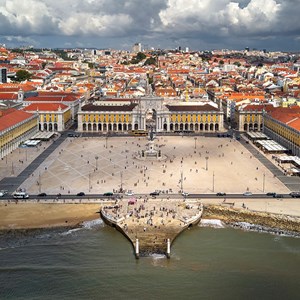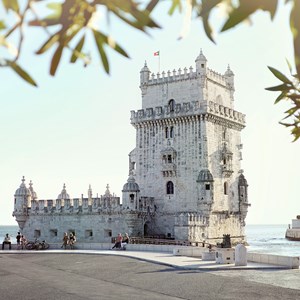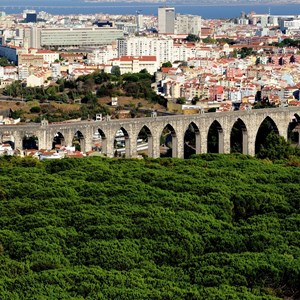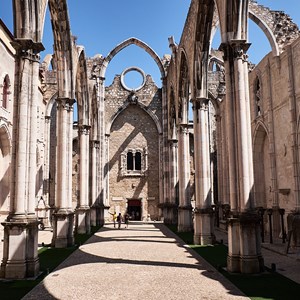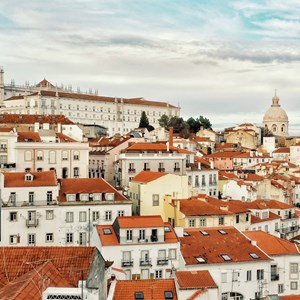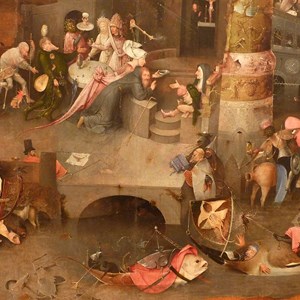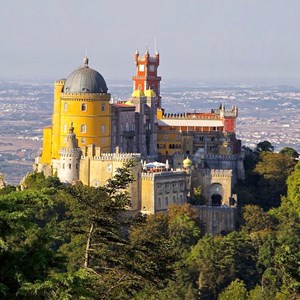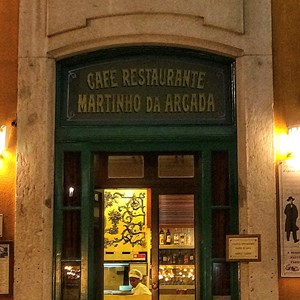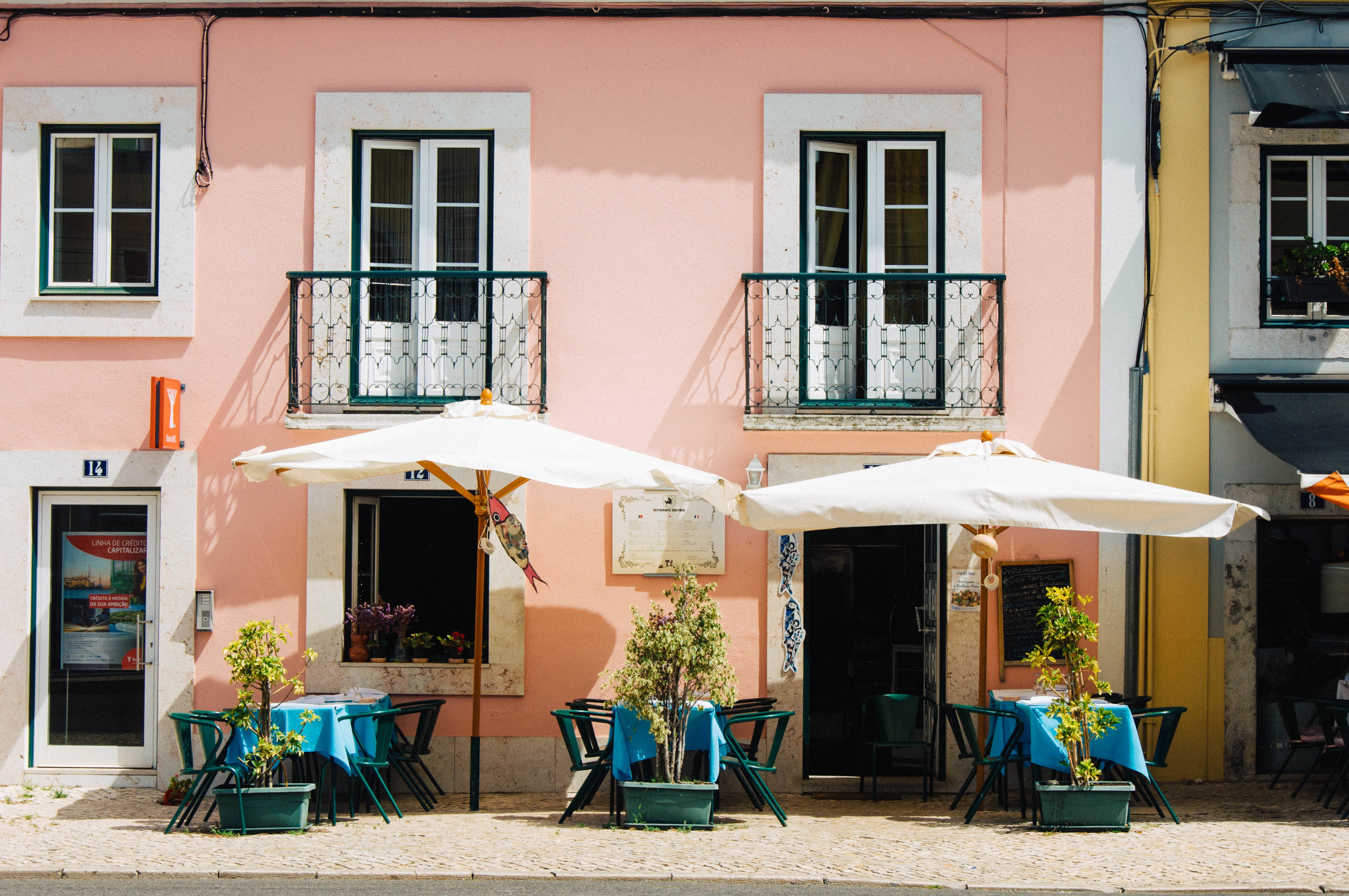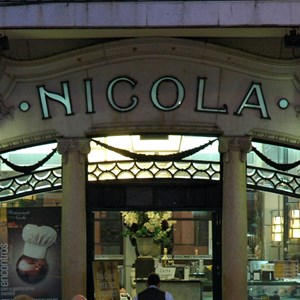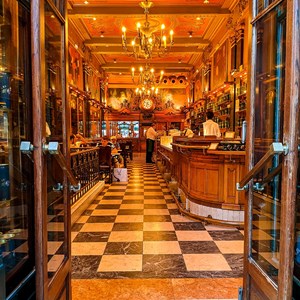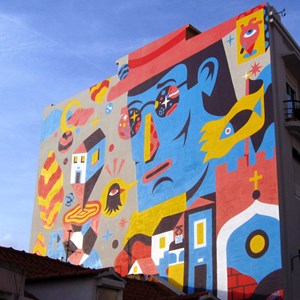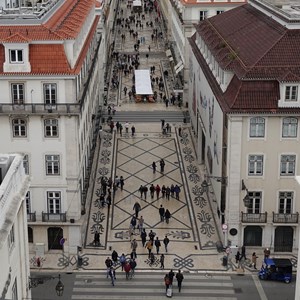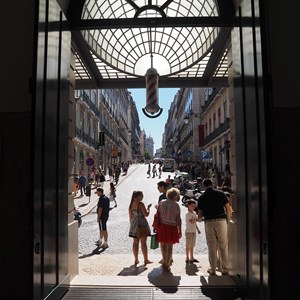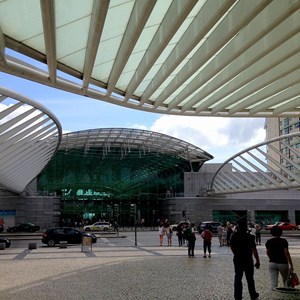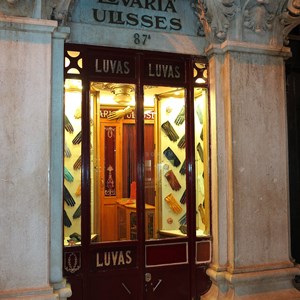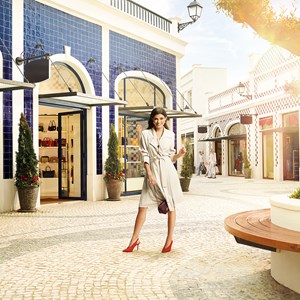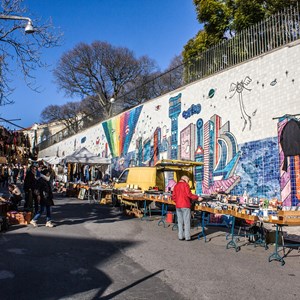

Lisbon's unique mixture of tradition and modernity, of small town and metropolis, captivates visitors from near and far. Excellent shopping, ornate architecture, late and safe nightlife, as well as restaurants with some of Europe’s best seafood are just a few of the reasons to visit this magnificent European capital.
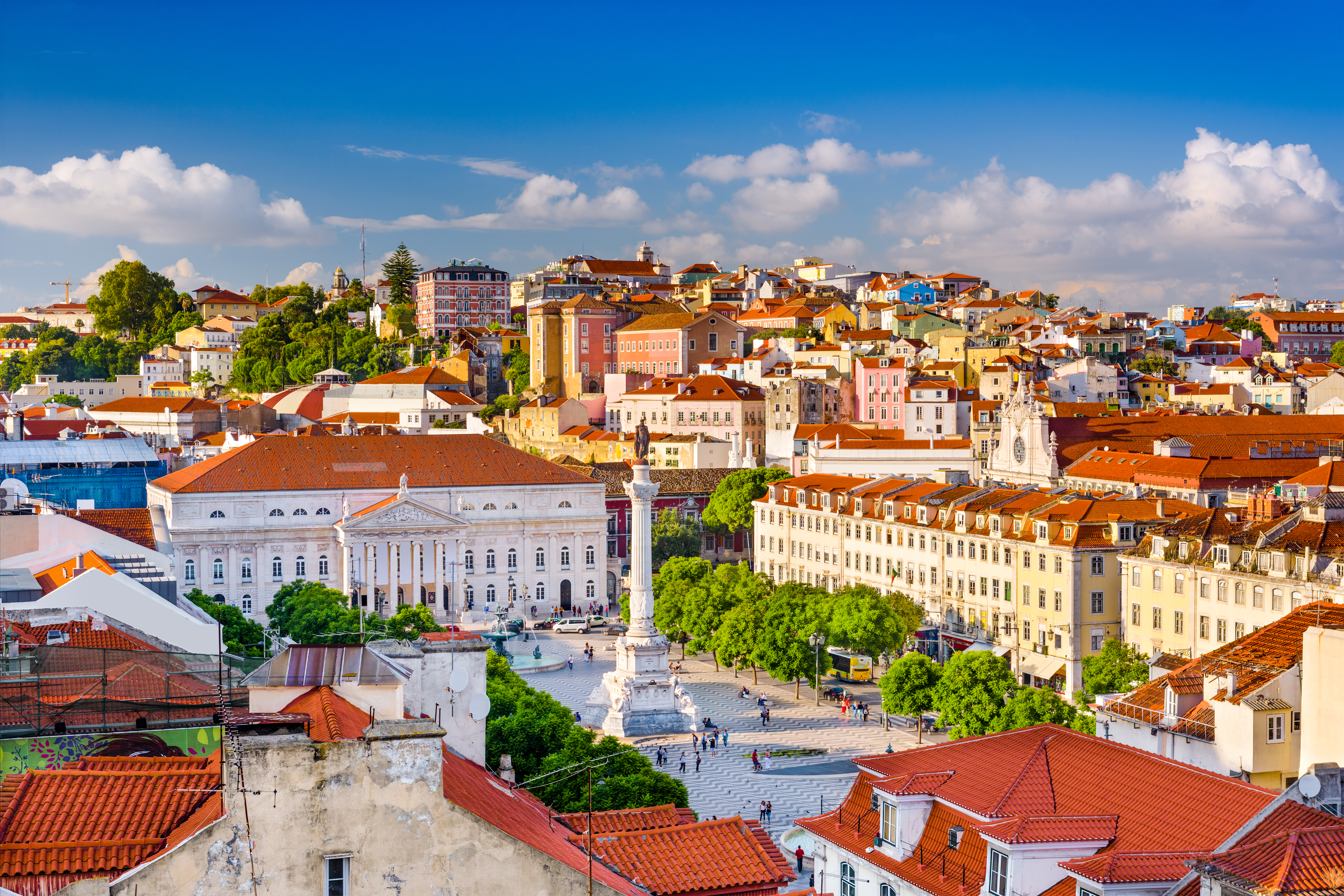 Sean Pavone/Shutterstock.com
Sean Pavone/Shutterstock.com
The City
Lisbon’s heart lies beside the river, even if the city has grown in all directions. Sit down at a pavement cafe on Rossio Square and you will see the Baiza, the flat city centre that dates from the 18th century, between yourself and the river bank. Look up in one direction and you will see the São Jorge castle on the top of a hill. Look in the other direction and you will see the ruin of the Carmo Church on another hill. Walk, or take a tram to one of them and you will discover the quarters of old Lisbon, most of them with a magnificent view of the rest of the city and the river.
Wander north from Rossio, you will soon end up on a stately 19th century avenue, in the part of the city which is still called "Avenidas Novas". Further north, the buildings become really new, with the city’s two large football grounds, Luz and Alvalade, and, lastly, the airport which is twenty traffic-jam-free minutes in a car from Rossio. Most of the best sights, restaurants and nightlife are situated along the river. Shopping is good along the Avenidas Novas, but otherwise the rule is to keep close to the river to get the best out of your visit.
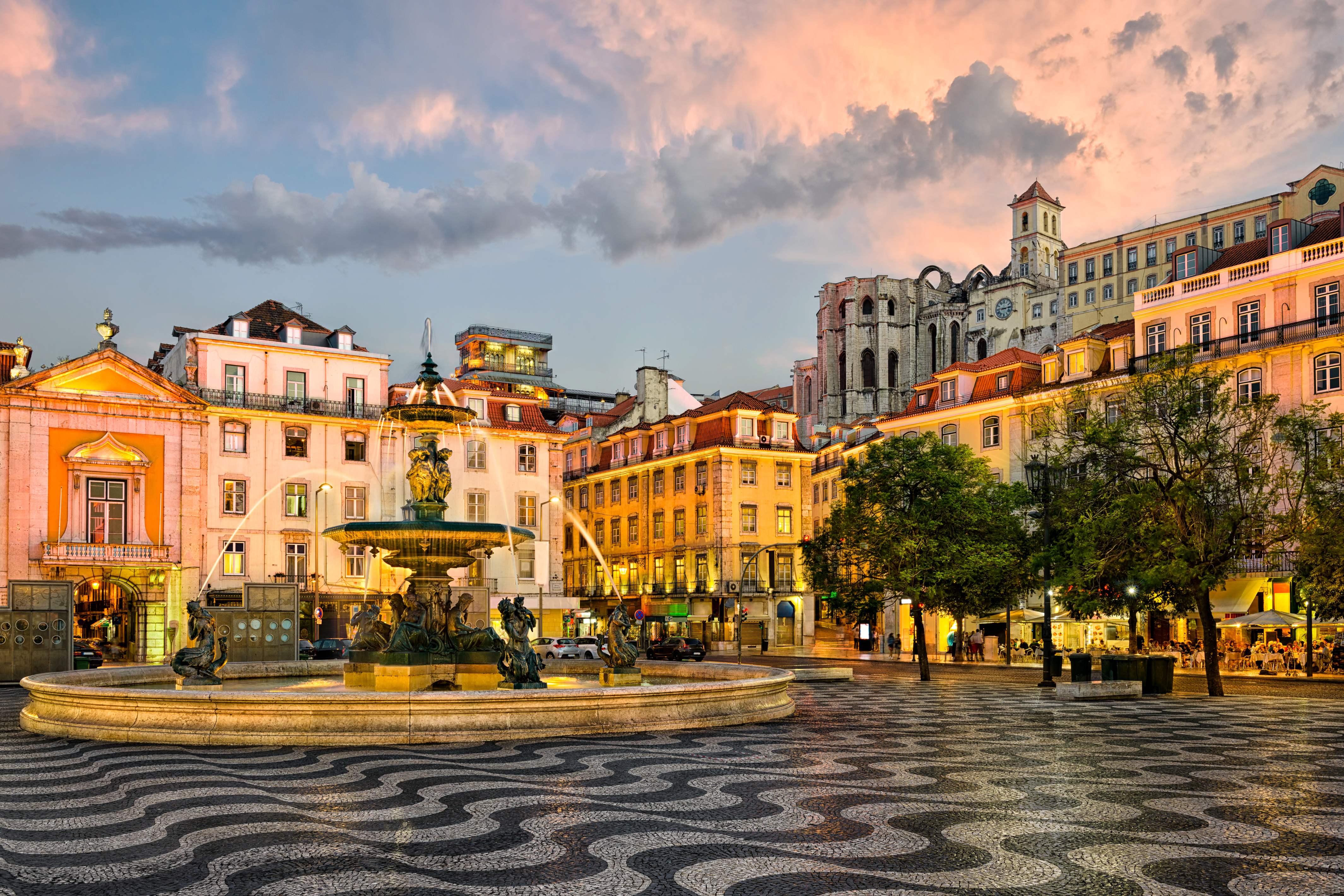 Mapics/Shutterstock.com
Mapics/Shutterstock.com
Do & See
A true modern metropolis that can compete with any world capital in the number of attractions, Lisbon is a city that is on the up and up. Best known for its colonialist history, rich architectural tradition and Fado music, the city is perfect for long walks — hike up the hills of Alfama or at St George's Castle to get the most spectacular views. Romans, Berber pirates, Moorish builders and brutal Reconquista knights left their mark on the urban fabric of the city.
Most of the best sights, restaurants and nightlife spots are situated along the river. Dive headfirst into the bohemian atmosphere of Lisbon.
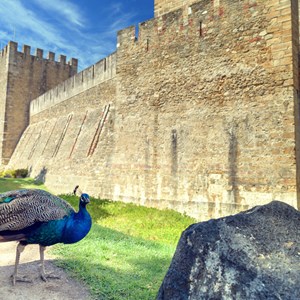 ZullU InFocus/Shutterstock.com
ZullU InFocus/Shutterstock.com
São Jorge Castle
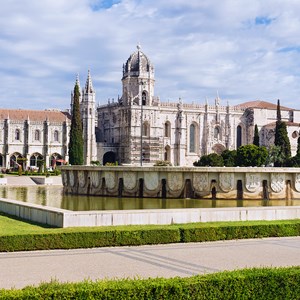 dimbar76/Shutterstock.com
dimbar76/Shutterstock.com
Jerónimos Monastery
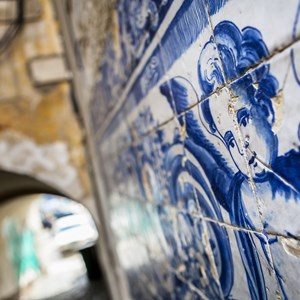 Marcel Bakker/Shutterstock.com
Marcel Bakker/Shutterstock.com
National Tile Museum
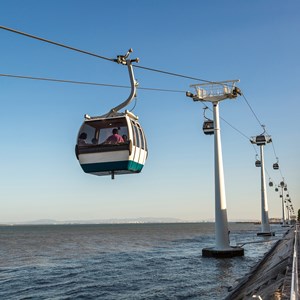 S-F/Shutterstock.com
S-F/Shutterstock.com
Parque Das Nações
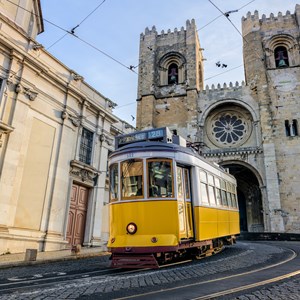 Kravtsov_Ivan/Shutterstock.com
Kravtsov_Ivan/Shutterstock.com
Tram 28
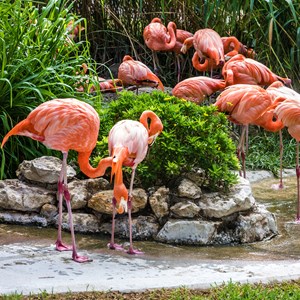 Vlada Photo/Shutterstock.com
Vlada Photo/Shutterstock.com
Lisbon Zoo
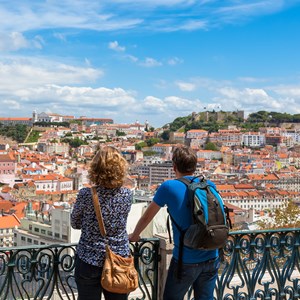 Samuel Borges Photography/Shutterstock.com
Samuel Borges Photography/Shutterstock.com
São Pedro de Alcântara Garden & Viewing Platform
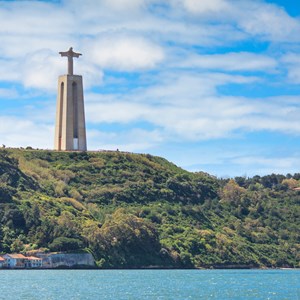 Ruslan Kerimov/Shutterstock.com
Ruslan Kerimov/Shutterstock.com
Sanctuary of Christ the King
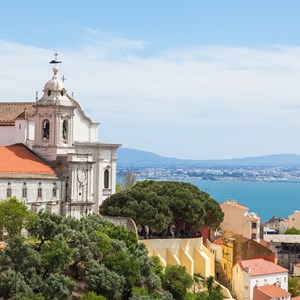 Samuel Borges Photography/Shutterstock.com
Samuel Borges Photography/Shutterstock.com
Miradouro da Senhora do Monte
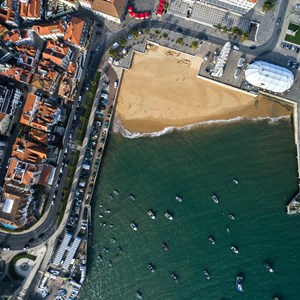 Gustavo Frazao/Shutterstock.com
Gustavo Frazao/Shutterstock.com
Cascais Village
 Iakov Filimonov/Shutterstock.com
Iakov Filimonov/Shutterstock.com
Lisboa Story Centre
 Chubykin Arkady/Shutterstock.com
Chubykin Arkady/Shutterstock.com
Museum of the Orient
 ariadna de raadt/Shutterstock.com
ariadna de raadt/Shutterstock.com
Dining
In Lisbon, you can find both modern and sophisticated restaurants as well as simple and very traditional ones. As you can expect, you will find the strongest Portuguese ambience in the simple and traditional places. Small and unpretentious restaurants can be found all over town and do not require booking. At most of the restaurants below, however, it is safest to book a table. Many restaurants are closed on Sundays or Mondays.
 Lara Ra/Shutterstock.com
Lara Ra/Shutterstock.com
Time Out Market
 Andrey Bayda/Shutterstock.com
Andrey Bayda/Shutterstock.com
Eleven
 Antonio Guillem/Shutterstock.com
Antonio Guillem/Shutterstock.com
Real Fábrica
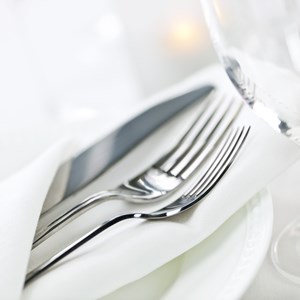 Elena Elisseeva/Shutterstock.com
Elena Elisseeva/Shutterstock.com
Casa Do Alentejo
 Solis Images/Shutterstock.com
Solis Images/Shutterstock.com
Cervejaria Trindade
 Oksana Shufrych/Shutterstock.com
Oksana Shufrych/Shutterstock.com
Garrafeira Alfaia
 stockyimages/Shutterstock.com
stockyimages/Shutterstock.com
Belcanto
 Nadya Lukic/Shutterstock.com
Nadya Lukic/Shutterstock.com
As Salgadeiras
 Nitr/Shutterstock.com
Nitr/Shutterstock.com
Ramiro Brewery
 espies/Shutterstock.com
espies/Shutterstock.com
Restaurante Zuari
 Joshua Resnick/Shutterstock.com
Joshua Resnick/Shutterstock.com
A Nossa Casa
Cafés
After a day of sightseeing, find a table at a pavement café on Rossio Square. Savour one (or two) Portuguese custard tart and restore your energy. Take in the milling of the crowd with the backdrop of the Baixa neighbourhood — the flat city centre that dates from the 18th century.
 Shebeko/Shutterstock.com
Shebeko/Shutterstock.com
Café No Chiado
 Roman Debree/Shutterstock.com
Roman Debree/Shutterstock.com
Fábrica da Nata
 Ekaterina Kondratova/Shutterstock.com
Ekaterina Kondratova/Shutterstock.com
Frutaria Café
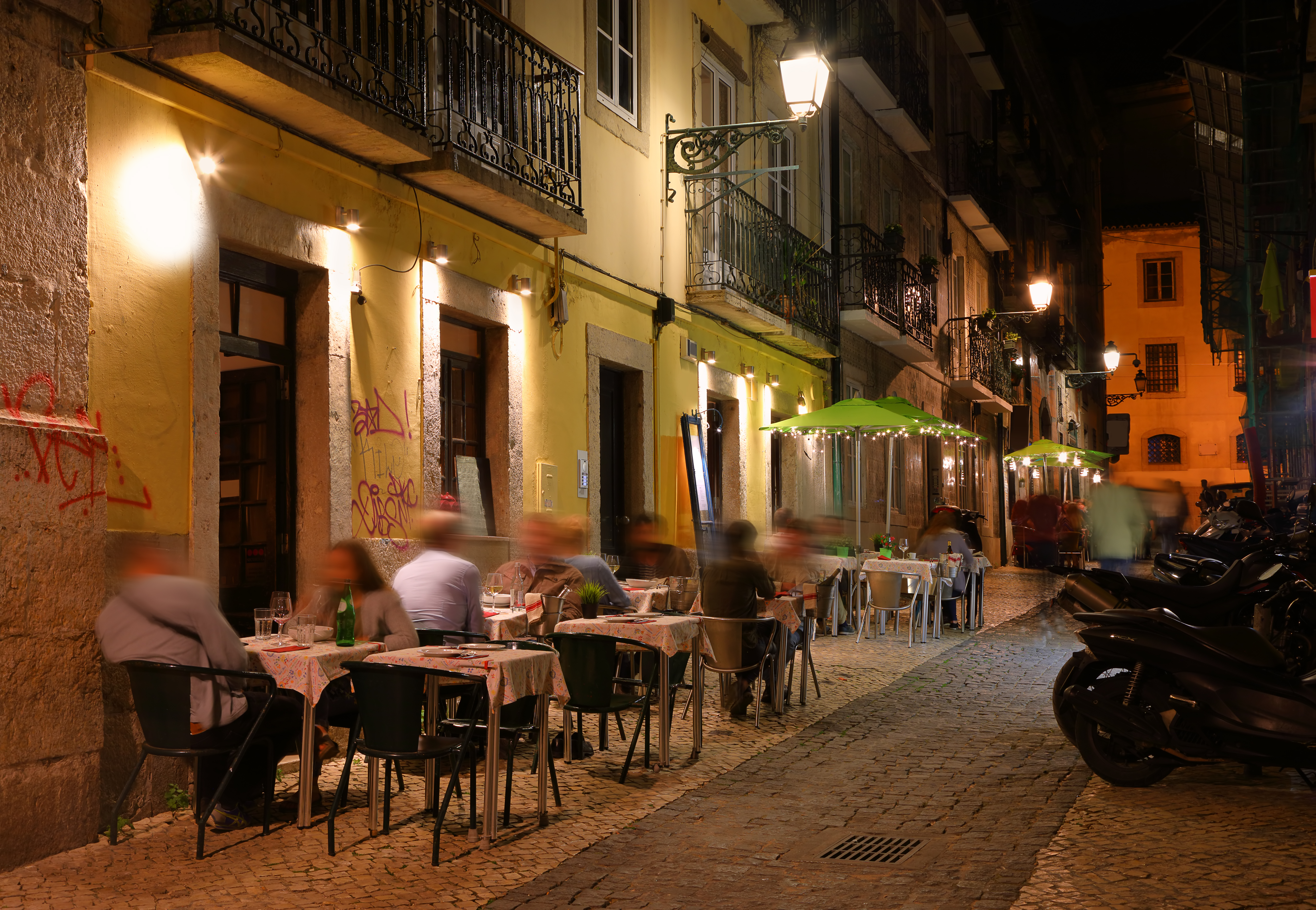 Kuznetsov Alexey/Shutterstock.com
Kuznetsov Alexey/Shutterstock.com
Bars & Nightlife
Lisbon is a city that takes its nightlife quite seriously. Shortly after midnight, it is best to move down towards the river and the larger clubs along Avenida 24 de Julho, the Docas area and Alcântara, where the coolest dance floors are never packed before two in the morning.
 Lara Ra/Shutterstock.com
Lara Ra/Shutterstock.com
Time Out Market
 Patrizia Tilly/Shutterstock.com
Patrizia Tilly/Shutterstock.com
Kremlin
 cdrin/Shutterstock.com
cdrin/Shutterstock.com
Matiz Pombalina
 Tarik Kaan Muslu/Shutterstock.com
Tarik Kaan Muslu/Shutterstock.com
Foxtrot Bar
 melis/Shutterstock.com
melis/Shutterstock.com
Hot Clube de Portugal
 Pressmaster/Shutterstock.com
Pressmaster/Shutterstock.com
Dock's Club
 krit66/Shutterstock.com
krit66/Shutterstock.com
Incógnito
 Pressmaster/Shutterstock.com
Pressmaster/Shutterstock.com
Musicbox
 bikeriderlondon/Shutterstock.com
bikeriderlondon/Shutterstock.com
Ministerium
 Nopkamon Tanayakorn/Shutterstock.com
Nopkamon Tanayakorn/Shutterstock.com
Red Frog Speakeasy
 Master1305/Shutterstock.com
Master1305/Shutterstock.com
Musa de Marvila
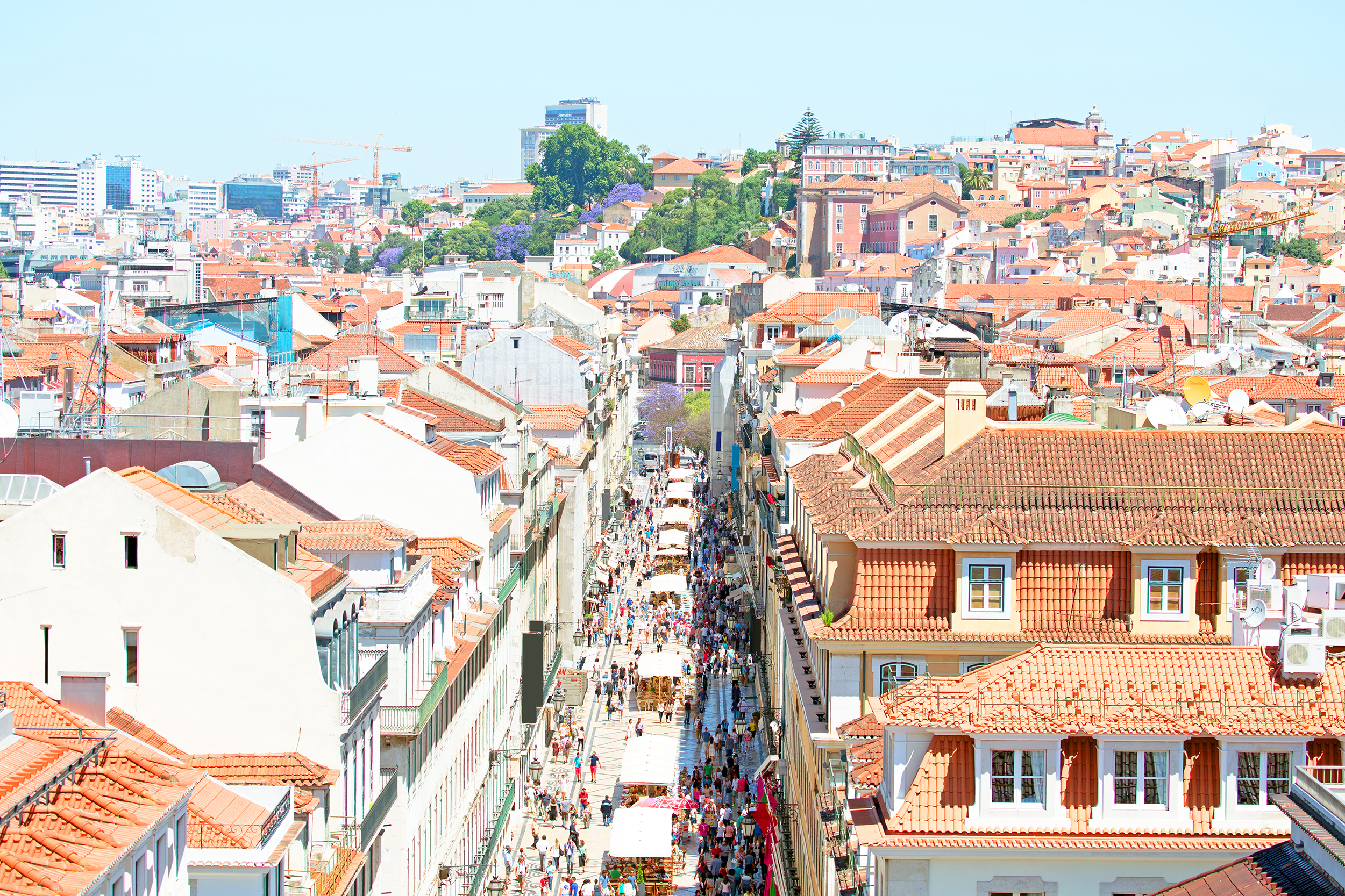 Steve Photography/Shutterstock.com
Steve Photography/Shutterstock.com
Shopping
A lot of the shopping in Lisbon is now housed in enormous shopping centres such as Colombo and Amoreiras, or in smaller gallerias. The city’s old centre, Baixa, retains its identity as a traditional shopping district, where you walk on the streets (some of them traffic-free) and drop into the shops. Go in for cork designs, gourmet food, crafts, soaps, shoes and if your wallet allows, gold.
Chiado is close to Baixa, and has the reputation of being the city’s finest shopping district. Chiado successfully manages to combine the gallery model with open shopping, combining the best of both worlds.
 Africa Studio/Shutterstock.com
Africa Studio/Shutterstock.com
Fátima Lopes
 wavebreakmedia/Shutterstock.com
wavebreakmedia/Shutterstock.com
El Corte Inglés
 g-stockstudio/Shuttertock.com
g-stockstudio/Shuttertock.com
Fábrica Sant'Anna
 gpointstudio/Shutterstock.com
gpointstudio/Shutterstock.com
Centro Colombo
 Alliance/Shutterstock.com
Alliance/Shutterstock.com
Centro Amoreiras
 Pressmaster/Shutterstock.com
Pressmaster/Shutterstock.com
Armazéns do Chiado
 seligaa/Shutterstock.com
seligaa/Shutterstock.com
Cork & Co
 Iakov Filimonov/Shutterstock.com
Iakov Filimonov/Shutterstock.com
A Vida Portuguesa
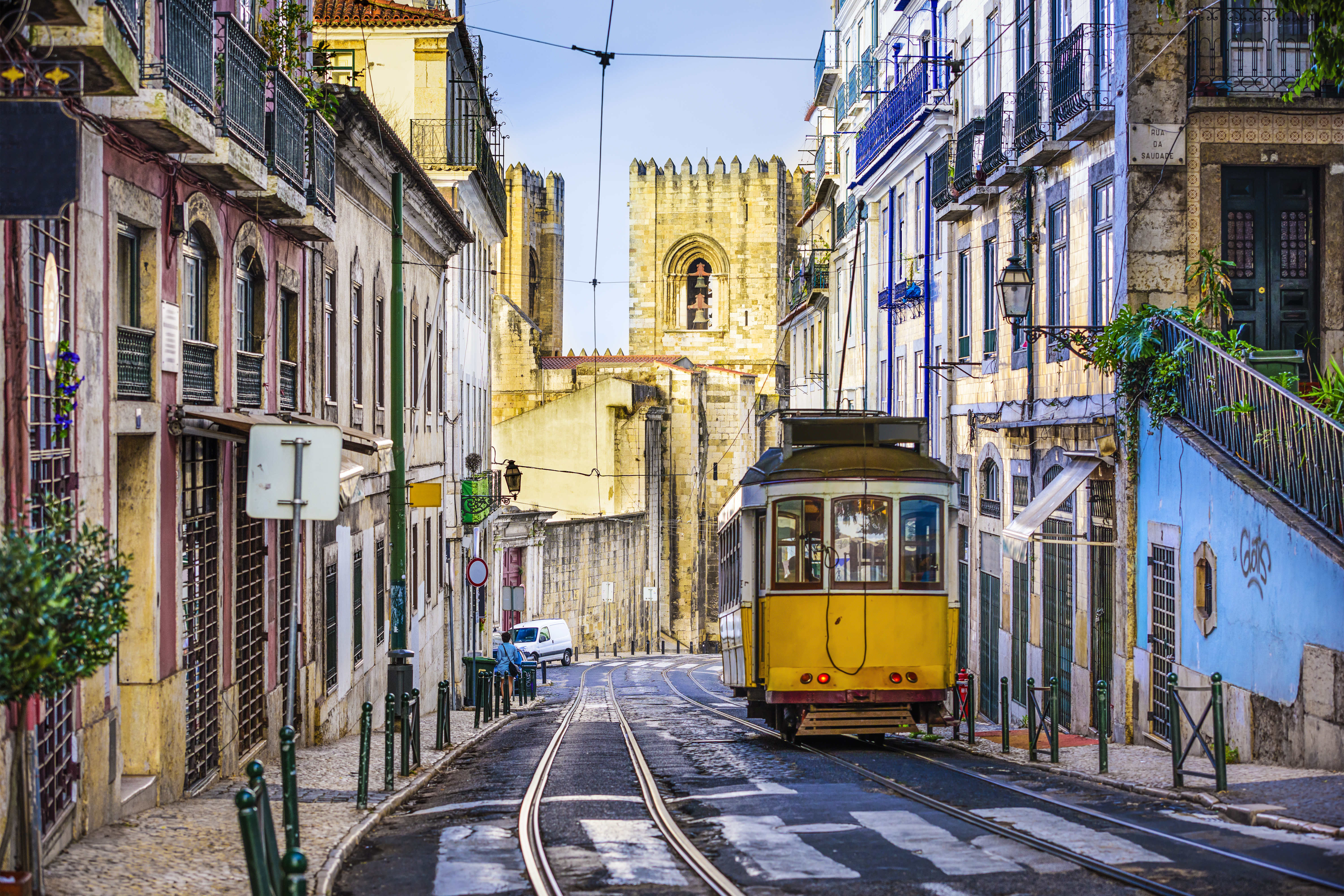 ESB Professional/Shutterstock.com
ESB Professional/Shutterstock.com
Tourist Information
Lisbon Airport (LIS)
Humberto Delgado Airport, also known as Lisbon Airport, is conveniently located near the city centre, providing quick, easy,and cost-effective transfers.
Two Aerobus lines, operating from 7:30am to 11pm, provide efficient connections. Line 1 connects the airport to Cais do Sodré, a major transport hub and vibrant cultural spot, with buses departing every 20–25 minutes. Similarly, Line 2 links the airport with Avenida José Malhoa, the heart of the city's financial district, on the same schedule.
Alternative public transportation options include the metro and city buses. The direct 'Aeroporto – Saldanha' metro line whisks you to downtown Lisbon in about 20 minutes. While city buses also serve the airport, please note that the maximum baggage size permitted on these buses is 50x40x20cm. If your luggage exceeds these dimensions, the airport-specific Aerobus or Airport Shuttle services are recommended.
For direct travel, taxis are readily available. Typically, a ride to the city centre will take between 20 minutes to half an hour, though times can vary with traffic conditions, particularly during nights and weekends.
If you're planning to explore beyond Lisbon, Gare do Oriente, the city's main train station, is a brief metro or bus ride away. This station offers comprehensive rail connections to destinations across the country. Of course, taxis are also available for added convenience.
Address: Aeroporto Humberto Delgado, Alameda das Comunidades Portuguesas, Lisbon
Email: lisbon.airport@ana.pt
Phone: +351 218 413 500
Website: www.aeroportolisboa.pt/en
More Information:
Passport & Visa
Citizens of European Union (EU) and European Economic Area (EEA) countries do not need a visa to enter Portugal, only a valid ID. Many other countries, including the United Kingdom, United States, Canada, United Arab Emirates, Australia, and New Zealand, benefit from visa-free entry for short stays of up to 90 days within a 180-day period.
Visitors from visa-exempt countries must hold a valid passport and, starting in late 2025, will need to apply for an ETIAS (European Travel Information and Authorisation System) authorisation online before travelling.
For those requiring a visa, such as travellers from some Middle-East, African or Asian nations, a Schengen visa must be obtained prior to arrival. All travellers should ensure their passport is valid for at least three months beyond their intended stay.
Address:
Email:
Phone:
Website: https://home-affairs.ec.europa.eu/policies/schengen/visa-policy_en
More Information:
Best Time to Visit
Lisbon enjoys a pleasant climate year round, with mild winters and very hot summers. During the summertime people head for the seaside for vacation and the beaches can get very crowded, especially during high season (July–August). Lisbon's location by the ocean means that the temperatures never get too high, and there is often a gentle breeze coming from the Atlantic.
The best time to visit Lisbon is definitely mid to late spring (April–May), when the weather is nice and warm and the city is not yet packed with tourists. The most important festivities are held in early June, when the whole city celebrates the patron saint, Saint Anthony, (on June 13th), and other revered saints. During the celebrations the city is full of people, with music, street dancing and traditional grilled sardines sold at kiosks along the streets.
Address:
Email:
Phone:
Website:
More Information:
Public Transport
Lisbon is well connected with public transport, including buses, underground, local trains, ferries, trams and funiculars. The latter two are the least efficient but most entertaining. Tickets can be purchased both at ticket offices and on board with an extra charge.
Buses and the underground stop running around 1 am, there are night buses but it is easiest to take a taxi for late night journeys.
Metro trains run daily from 6:30 am to 1:00 am. Buses run daily from 5:30 am to 12:30 am, after which you should consult the night busses schedule.
Address:
Email:
Phone:
Website: www.metrolisboa.pt
More Information:
Taxi
Taxis can be stopped on the street, taken from stations, requested by calling or via an app. Taxi tariffs in Portugal are officially set by cities or districts. You can use an online fare calculator to know how much your trip will cost, more or less. The basic fee is €3.25, the kilometre price is €0.47. For standing and waiting time, €14.80 is charged per hour. Nighttime fees are a bit higher. Surcharges may apply.
In central Lisbon, empty taxis circulate frequently, except during rush hours or when it rains. Tips are not mandatory, but are appreciated even if they are small.
You can install and use apps like Bolt (Taxify), Free Now (My Taxi), and Cabify, and more taxi apps are launching all the time. Uber remains the most popular one.
Address:
Email:
Phone:
Website: www.teletaxis.pt
More Information:
Post
Post offices are generally open on weekdays from 8:30 am to 6 pm and Saturdays until 12:30 pm. The main post office at Praça dos Restauradores has longer opening hours on weekdays but is closed on weekends.
Address: Loja CTT Restauradores , Praça dos Restauradores, Lisbon
Email:
Phone: +351 21 047 1616
Website: www.ctt.pt
More Information:
Pharmacy
Generally, pharmacies in Lisbon are open on weekdays from 9 am to 7 pm; some pharmacies close for lunch. On Saturdays, pharmacies close around 1pm. Each district will have a 24 hour pharmacy (farmácia, with a green cross) according to a schedule posted in the windows of all closed pharmacies.
Address:
Email:
Phone:
Website:
More Information:
Phone
Country code: +351
Area code: (0)21
Address:
Email:
Phone:
Website:
More Information:
Electricity
220 V/50Hz with a Type F electrical plug with two round pins, same as in many countries in Continental Europe.
Address:
Email:
Phone:
Website:
More Information:


